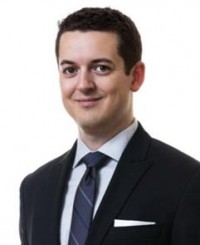Miniaturized Energy Management and Harvesting Architectures for Mobile and IoT Applications

Speaker: Patrick Mercier
Affiliation: UC San Diego
Abstract: Ubiquitous wireless connectivity is rapidly enabling new generations of portable and wearable technologies that are slated to revolutionize how humans interact with their surrounding infrastructure, acquire medical information, or monitor their fitness and real-time performance. While potentially transformative to an extremely wide-range of applications, current devices are almost universally limited by power: batteries have limited capacity, and energy conversion and management electronics can be large and/or inefficient.
In this talk I will discuss new energy management and harvesting architectures that 1) increase efficiencies beyond state-of-the-art in ultra-miniaturized form factors, and 2) enable energy harvesting from previously un-explored sources. Specifically, I will discuss new switched-capacitor DC-DC converter topologies that efficiently operate over wide voltage ranges in volumes that are competitive with inductive-based converters, I will present new energy harvesters operating from electrochemical gradients and biofuels naturally found on or within the body, and I will show that we can build entire wireless sensing systems with only a few nanowatts of power budget, enabling new classes of net-zero-power Internet-of-Things-type systems.
Biography: Patrick Mercier joined the Electrical and Computer Engineering Department at UC San Diego as an Assistant Professor in 2012. He received his Ph.D. degree from the Massachusetts Institute of Technology (MIT) in 2012, with a doctoral thesis on the topic of communication and energy delivery architectures for personal medical devices. Prior to that, he received his S.M. degree from MIT in 2008 and his B.Sc. degree from the University of Alberta, Canada, in 2006.
Prof. Mercier received the DARPA Young Faculty Award in 2015, the Beckman Young Investigator Award in 2015, the Hellman Fellowship Award in 2014, the Graduate Teaching Award in Electrical and Computer Engineering at UCSD in 2013, the International Solid-State Circuits Conference (ISSCC) Jack Kilby Award for Outstanding Student Paper at ISSCC 2010, an Intel Ph.D. fellowship in 2009, the Natural Sciences and Engineering Council of Canada (NSERC) Postgraduate Scholarships in 2007 and 2009, and an NSERC Julie Payette fellowship in 2006. He is an Associate Editor of the IEEE Transactions on Biomedical Circuits and Systems and the IEEE Transactions on VLSI, serves as the co-Director of the Center for Wearable Sensors at UCSD, and was the co-editor of Ultra-Low-Power Short-Range Radios (Springer, 2015). His research interests include the design of energy-efficient mixed-signal systems, RF circuits, power converters, and sensor interfaces.
For more information contact Professor Behzad Razavi (razavi@ee.ucla.edu)
Date/Time:
Date(s) - Apr 11, 2016
1:00 pm - 2:00 pm
Location:
EE-IV Shannon Room #54-134
420 Westwood Plaza - 5th Flr., Los Angeles CA 90095
